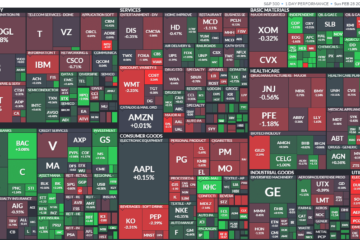Investing. It can be a really complicated topic. Nearly everyone has an opinion about it as well. Everyone from Warren Buffett to your own Uncle Craig who thinks he knows what he is talking about because he knew that Microsoft would be a great company before anyone else did. People are always searching for the next big stock or any stock tips that they can get their hands on. Yikes. Well let me tell you that there is a VERY slim possibility that you will find the next big stock before anyone else does. If you want to build wealth you have to diversify into a bunch of different investments. And while there are a LOT of investments to choose from, let’s focus on three of the biggest ones for the vast majority of investors. And more specifically, let’s go into some of the differences between mutual funds, index funds, and ETFs.
(1) Broad Overview
Mutual funds, index funds, and ETFs all do essentially the same thing. However, there are some main differences that you can see in the chart below.
Mutual funds, index funds, and ETFs are all some version of a pooled investment. Meaning that when you purchase one of them you are actually purchasing a bucket. Inside that bucket are the specific investments (a little of Company A, some of Company B, a dash of Company C, etc.). Investing in this manner will help you achieve a level of diversification that you will need to be successful.
Speaking in broad terms, you can purchase pretty much any fund (whether it be a mutual fund, index fund, or ETF) that you would like and they would do almost the same thing. They would each give you a diversified investment aimed at whatever goal that you have (maximum return, dividends, fixed income, government securities, etc.).
(2) Mutual Funds vs. Index Funds vs. ETFs
With all that being said, here is a good chart to explain some of the differences between mutual funds, index funds, and ETFs.
| Mutual Funds | Index Funds | ETFs | |
| Trade on exchange? | No | Yes | Yes |
| Trade throughout the day? | No | Yes | Yes |
| Transparent? | Not as much | Yes | Yes |
| Expense Ratio | Highest | Lower | Lowest |
| Management style | Active | Passive | Passive |
| Management fees | 0.5%-1.0% | 0.02%-0.30% | Nothing-0.20% |
| Minimum to invest | $1,000 (usually) | $1 (usually) | $1 (usually) |
Final Thoughts
While there is really a lot to sift through on the difference between mutual funds, index funds, and ETFs, these are the high notes. We could really get in the weeds and into the nitty-gritty but these are the items that most people need to worry about.
As far as for myself, I lean hard into index funds and ETFs. In my own portfolio, I have a really good mix of the two. I have about 85% of my investment portfolio made up between index funds and ETFs.
I LOVE the low fees. I am a pretty cheap guy. I like to have as little fees as possible eat into my earnings. I want to keep that money!
In my opinion, most mutual funds aren’t worth the high fees that they charge. Of course, there are exceptions to the rule. But as far as what I have seen, I would rather just pay low fees in index funds and ETFs rather than sift through dozens of mutual funds to find the one with the lowest fees.
If you want to know more about mutual funds, click here.
If you want to know more about index funds, click here.
If you want to know more about ETFs, click here.
Until next time!



0 Comments